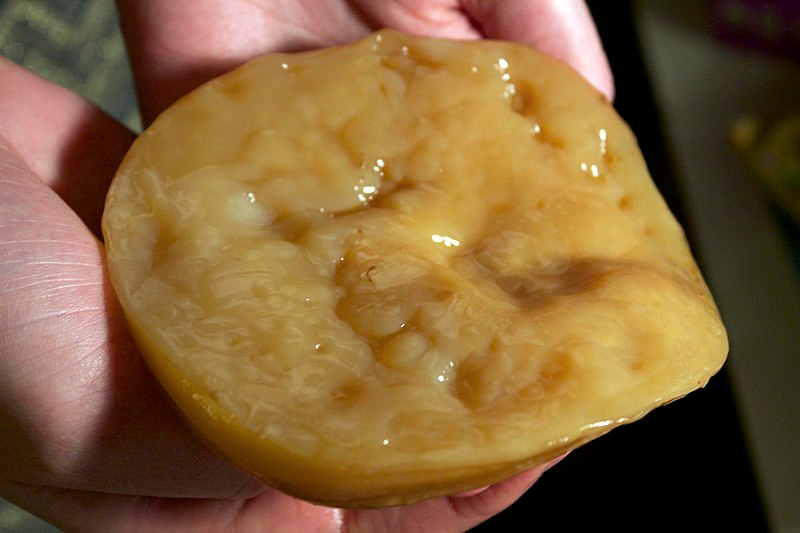n. A gelatinous mass formed by the interaction of bacteria and yeast and used in the production of foods and beverages such as sourdough bread and kombucha.
2017
There are other important factors that influence how a starter develops, including holding temperature, feeding schedule, proportion of flour and water, contamination from nearby sources, and fermentation technology. Consistency in all of these factors is key if you want to preserve a SCOBY.
2017
SCOBYs are flat, milky-white discs of fungus. You can buy them online (where else?) or get them from a kombucha-brewing friend.
2015
Kefir is not one single bacterial culture, but a community of diverse species of bacteria and fungi that live together in kefir grains. A Symbiotic Community Of Bacteria and Yeasts (SCOBY), kefir grains are known to contain dozens of bacterial and fungal cultures, each species playing a different role in the community, and all of the cultures together transform milk into kefir.
2003 (earliest)
What you'll need: …The “mother” or SCOBY (Symbiotic Culture of Bacteria and Yeast). This is what makes it all happen; it should be stored in already made Kombucha tea to keep it moist.
 A SCOBY used for brewing kombucha. Source: Wikipedia
A SCOBY used for brewing kombucha. Source: Wikipedia